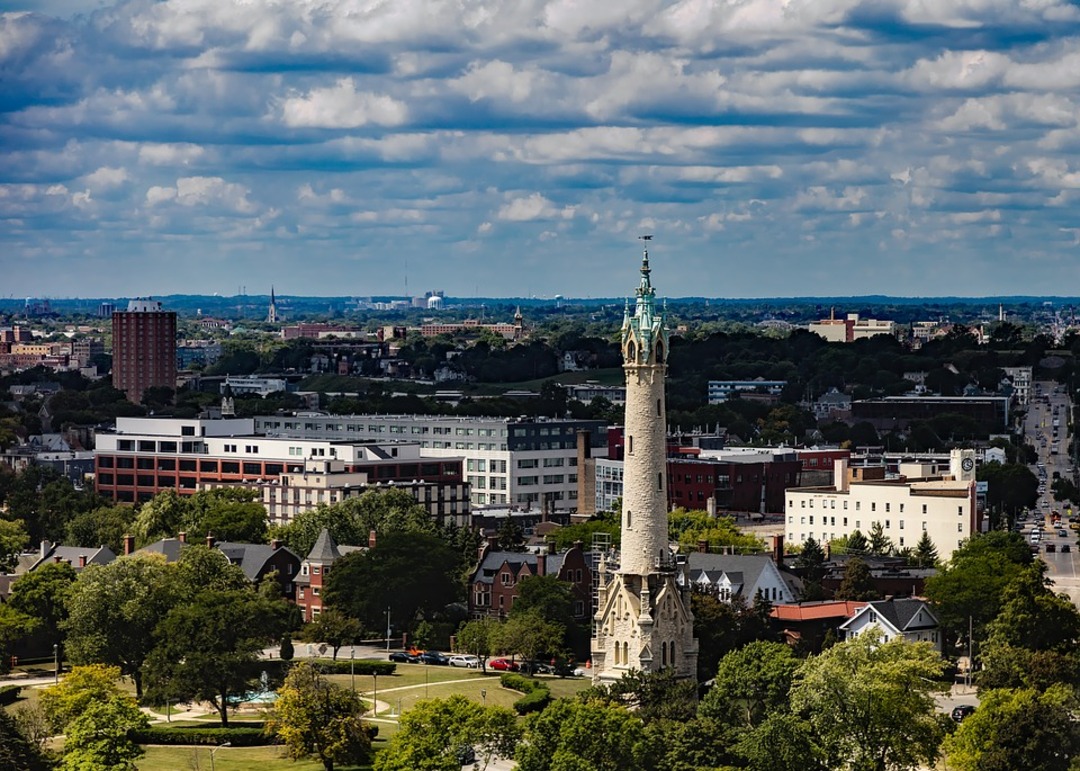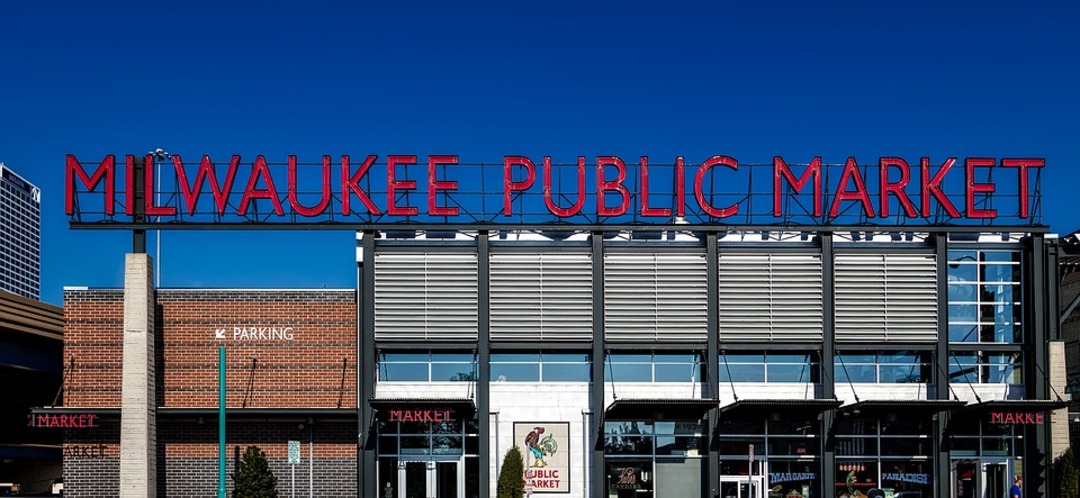-
Muslim-American community in Milwaukee city seeks representation in government

The Arab News reported that leaders in the Muslim-American community in Milwaukee in the state of Wisconsin are hoping to achieve representation in the city government to reflect their growing numbers and needs.
The city of Milwaukee’s diverse Muslim community is concentrated in the 13th district and is seeking to have its own representation in the city council, known as the Common Council, in which 15 districts are represented by 15 aldermen. However, differences over representation with the Hispanic-Latino community, which seeks to increase its own presence in the city government, has brought the issue to public attention.
Arab and Muslim Americans were legally counted as “white” in the last census, contributing to their under-representation. Community leaders say that the 13th district has tens of thousands of Muslim residents whose national origins lie in the Middle East and other parts of the world.
After the US national census last year, the Hispanic and Latino community, which controls two other districts, wanted to represent the 13th district as well. This reflects a desire to have more representation, as a result of its own growing population, once redistricting is approved by the city government. This situation has created a conflict about who should be representing the 13th district.

The Latino community had sought to have a Hispanic-majority or near-majority 13th district by advocating the transfer of heavy Latino areas into the 13th district and removing areas with the least number of Latinos.
Under this scheme, the Muslim community in the district would be chopped up between different districts and lose its economic and political contiguity to accommodate the objectives of the Hispanic leaders.
Most African Americans list racial injustice and police violence as most worrying problems
Janan Najeeb, a community leader and president of the Milwaukee Muslim Women’s Coalition and director of the Islamic Resource Center, told Arab News that the Arab and Muslim community has no problem with the Latino community — in fact she considers them natural allies who have shared the same struggles.
Najeeb said that leaders from the Muslim and Hispanic communities have had many meetings to resolve their differences in a way that will benefit both groups. She added that all the redistricting maps submitted by the leaders of the Hispanic community proposed remapping the wards or areas that were heavily Muslim and dispersing them in different areas, causing them to lose their concentration in the 13th district. The plan would ultimately deprive the Muslim community of the opportunity to have a Muslim representation in the city government, she said.
Najeeb said that the Muslim community was still expanding and it would be unfair to let another ethnic group represent them when they could represent themselves.
She said: “We want a Muslim representation in the city that would reflect our own interests and issues."
Survey: Gun purchases accelerates in the United States in 2020-2021
Milwaukee’s city government has not passed the Hispanic community’s proposed remapping and redistricting, leaving the original district map intact. This is considered a major win for the Muslim community as it leaves its areas part of one district.
The 13th district is home to the largest concentration of Muslims in Wisconsin. The community is very mixed, reflecting the diversity of the Muslim world itself as many people have roots in the Middle East, US, Africa, Asia and Europe. It also includes a growing number of Latino Muslims.
There are more than 100 Muslim businesses and institutions in the district, with three mosques including the Islamic Society of Milwaukee, hosting the largest mosque in Wisconsin, and the Salam School with 1,000 students on two campuses, civic institutions, pharmacies and medical clinics.
Despite its growing numbers and visible presence, the Muslim community not just in Wisconsin but across the US cannot select a category in the census to reflect its ethnicities or national origins; instead it had to select the “white” category in the 2020 census.
First US woman to be cured of HIV after receiving a stem cell transplant
The Arab and Muslim community in the US has long fought to have a “MENA” category to reflect Americans who come from the Middle East and North Africa. Should this designation be accepted in the future, Arab and Muslim communities across the US would benefit from many federal programs aimed at supporting minority groups.
Najeeb said: “Ultimately, the real issue for us is not with the Hispanic community, whom we consider allies and friends, rather with the designation of us as “white” — thus depriving us of proper representation and many state and federal benefits.”
Source: arabnews
You May Also Like
Popular Posts
Caricature
BENEFIT Sponsors BuildHer...
- April 23, 2025
BENEFIT, the Kingdom’s innovator and leading company in Fintech and electronic financial transactions service, has sponsored the BuildHer CityHack 2025 Hackathon, a two-day event spearheaded by the College of Engineering and Technology at the Royal University for Women (RUW).
Aimed at secondary school students, the event brought together a distinguished group of academic professionals and technology experts to mentor and inspire young participants.
More than 100 high school students from across the Kingdom of Bahrain took part in the hackathon, which featured an intensive programme of training workshops and hands-on sessions. These activities were tailored to enhance participants’ critical thinking, collaborative problem-solving, and team-building capabilities, while also encouraging the development of practical and sustainable solutions to contemporary challenges using modern technological tools.
BENEFIT’s Chief Executive Mr. Abdulwahed AlJanahi, commented: “Our support for this educational hackathon reflects our long-term strategic vision to nurture the talents of emerging national youth and empower the next generation of accomplished female leaders in technology. By fostering creativity and innovation, we aim to contribute meaningfully to Bahrain’s comprehensive development goals and align with the aspirations outlined in the Kingdom’s Vision 2030—an ambition in which BENEFIT plays a central role.”
Professor Riyadh Yousif Hamzah, President of the Royal University for Women, commented: “This initiative reflects our commitment to advancing women in STEM fields. We're cultivating a generation of creative, solution-driven female leaders who will drive national development. Our partnership with BENEFIT exemplifies the powerful synergy between academia and private sector in supporting educational innovation.”
Hanan Abdulla Hasan, Senior Manager, PR & Communication at BENEFIT, said: “We are honoured to collaborate with RUW in supporting this remarkable technology-focused event. It highlights our commitment to social responsibility, and our ongoing efforts to enhance the digital and innovation capabilities of young Bahraini women and foster their ability to harness technological tools in the service of a smarter, more sustainable future.”
For his part, Dr. Humam ElAgha, Acting Dean of the College of Engineering and Technology at the University, said: “BuildHer CityHack 2025 embodies our hands-on approach to education. By tackling real-world problems through creative thinking and sustainable solutions, we're preparing women to thrive in the knowledge economy – a cornerstone of the University's vision.”
opinion
Report
ads
Newsletter
Subscribe to our mailing list to get the new updates!






















